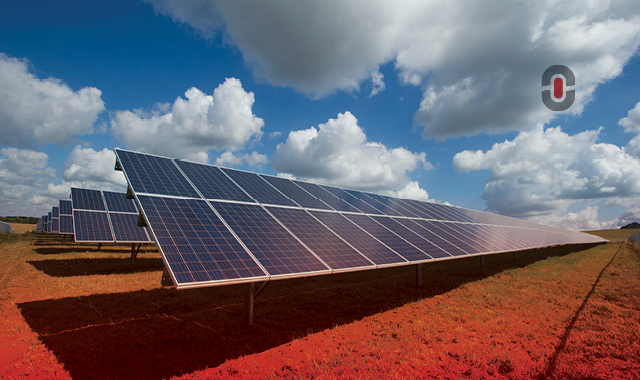- Home
- Resource Center
- Articles & Videos
- Renewable Energy Translation: A Gateway to Vietnamese Market
16 October 2023
| by 1-StopAsia
Renewable Energy Translation: A Gateway to Vietnamese Market

Sign up for our newsletter on globalization and localization matters.
Over 25% of Vietnam’s total power capacity is from renewable energy sources. In addition to this, over the next 25 years, the local renewable market is expected to hit a value of $714 billion and it is expected to continue developing. With the rise in the use of renewable energy, it is imperative for accuracy in renewable energy translations. But what is renewable energy and what are some of the challenges that may be encountered when doing Vietnamese translations to English or to other languages? In this article, we attempt to answer these questions. Let’s take a closer look.
What is renewable energy?
Renewable energy is any source of energy that is derived from sources that have the potential to renew themselves or which never run out or which are unlikely to run out irrespective of their levels of use. For example, with solar power, which relies on energy derived from the sun, we can safely say that the sun is not going anywhere anytime soon and that it will continue to provide light and warmth to our planet. The same applies to hydro, wind, and geothermal energy whose sources of energy are waves in the ocean, wind-driven turbines, and many others.
What are the challenges of the industry when it comes to translation and localization?
Vietnam is positioning itself as a country that is shifting away from coal-powered energy use to a renewable energy use country. With its multiple renewable energy projects and foreign players coming to the fore, it is essential for accurate translations from and to Vietnamese to ensure that each project is carried out error-free and without the unwanted consequences of excessive costs, unsafe working conditions for people involved in the industry, and many others. As such, there are several challenges that arise when it comes to renewable energy translation and Vietnamese translation in particular. These challenges include:
- Translation and localization accuracy
- Modern terminology that must be adapted to an old language
- The use of modern translation tools and software
- The need for timely and efficient translations
- Error-free translations that consider all safety aspects
- The need for secrecy and document confidentiality
- And numerous others
Specifics of the Vietnamese language and how this can be applied to renewable energy
Vietnamese is a complex language with a complex structure. When it comes to Vietnamese translation, irrespective of whether this part of renewable energy translation or another type of translation, several studies have shown that there are frequently encountered errors when doing translations into or from Vietnamese. These errors can result in unintended or incorrect meanings being assigned to the target text when using the source language. In particular, there are significant differences between English and Vietnamese and these differences can have a significant effect on renewable energy translation in the context of Vietnamese translation.
Some of the major stumbling blocks when it comes to Vietnamese translations include the following:
- There are major differences in the two languages’ grammatical structures, including the symbols/letters used in the two languages;
- It is common for inexperienced translators to translate word-for-word, using the wrong form and articles;
- Vietnamese has a topic-comment sentence relationship as opposed to the subject-predicate relationship found in English
- Poor translations also occur when English words are strung together using Vietnamese word order;
- According to a study, “because both Vietnamese conjunctions and prepositions are employed to connect sentence parts,” traditional Vietnamese grammarians tend to synchronize Vietnamese prepositions with conjunctions into conjunctions. However, conjunctions are used to connect sentence levels, whereas prepositions are used to connect words or phrases.
- Distorted meanings can often arise due to linguistic errors (e.g. morphological, syntactic, and collocation), comprehension errors (misunderstanding of lexis and syntax), and translation errors (distorted meaning, additions, omissions, inaccurate renditions of lexical items).
- Idioms in both English and Vietnamese can be difficult to translate and localize.
- Another area of distinction between the two languages is that there are three “to be” verbs in English whereas there are none in Vietnamese.
- Vietnamese does not use time particles or time adverbials to convey tense, aspect, or number. On the other hand, English uses morphological morphemes such as “-ed,” “-en,” and “-ing” to indicate tense and number.
- Further errors that occur in Vietnamese translation are related to articles. These can often be omitted altogether or their use and the intended meaning are often misunderstood.
- In addition, Vietnamese vocabulary tends to consist of single-syllable language while English is a multi-syllable language.
- Vietnamese doesn’t really have tense in the sense that English verbs do, which will change their form when in different tenses or with different pronouns.
- And speaking of tenses, when implying the past, present, or future, or using various pronouns, Vietnamese verbs don’t change their form.
- In some cases, passive statements in Vietnamese should be active in English and vice versa.
Concluding remarks
Based on just a few of the linguistic differences identified above between English and Vietnamese, renewable energy translation – whether referring to solar power generation or other types of energy – must be precise and accurate to avoid loss of competitiveness for many enterprises involved in the field. It’s also crucial to ensure the safety of staff, as they often have to use and operate equipment using foreign and translated operational manuals.
With this in mind, safety and competitiveness appear to be the two primary aspects when it comes to renewable energy translation although there are many others. With this in mind, it’s worth considering the frequently encountered linguistic and translation challenges and finding translation partners who can help overcome these challenges with the precision, quality, and attention to detail that the industry requires.
Do you want to contribute with an article, a blog post or a webinar?
We’re always on the lookout for informative, useful and well-researched content relative to our industry.

Desi Tzoneva
Desi Tzoneva has a Bachelor of Laws degree from the University of South Africa and a Master's in International Relations from the University of Johannesburg. For the past five years, she's been a content writer and enjoys unraveling the intricacies of the translation and localization industry. She loves traveling and has visited many countries in Asia, Europe, Africa, and the Middle East. In her spare time, she enjoys reading. She will also never say no to sushi.


